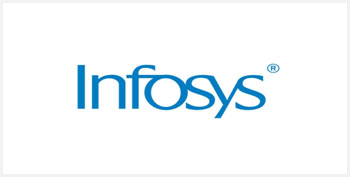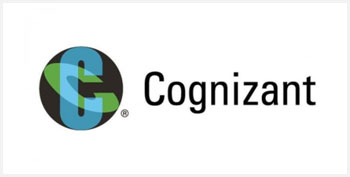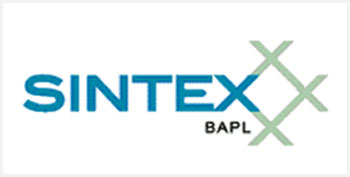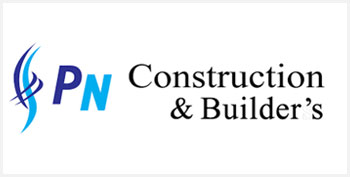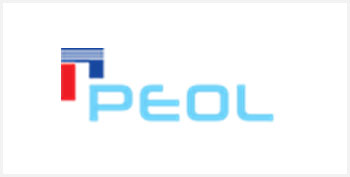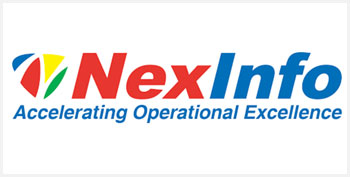Overview
Department of B.Com. Bank Management is an under graduate course started in the academic year 2016-2017 with the prime aim of providing education in the field of commerce where students can learn the latest trends in banking business finance and commerce. The faculty team guides students in every step by motivating them constantly to upgrade their personal and professional skill.
Three years UG Degree program which lay stress on subjects like banking communication accounting taxation business laws entrepreneurial development and economics. This course is beneficial in nature that provides many career scopes for the candidates after its completion.
SCOPE OF THE COURSE:
This course provides a better curriculum in order to produce well qualified professionals required in banking corporate sector Automobile Industry Transportation IT Companies Educational Institutions Insurance Sector Export & Import and you can also come up with knowledge to the real world perspective.
Programme
Duration:
3 years (Regular)
No. of Semesters:
6 (Regular)
Eligibility:
The candidates should complete their 10+2 or its equivalent exam with subject like Accounts etc. in Commerce stream..
Career Opportunities:
Banking Sector - Government and Private Sector Banks, Security Analysist, Head-Finance Manager, Head-Sales Manager, Head- Administrative Officer, Company Secretary, Automobile Industry, Transportation, TNPSC Group Post,IAS,IRS,IFS, Corporate Sector, IT Companies, Educational Institutions, Insurance Sector, Export trades & Services and the like
Vision
Pioneering excellence in banking education our Bank Management department aspires to be a hub for financial acumen fostering a community of future leaders well-equipped to navigate the complexities of the financial industry.
Mission
To provide a comprehensive and dynamic education in bank management.
To empower students with knowledge skills and ethical values.
To cultivate a learning environment that encourages innovation critical thinking and prepares students to make a positive impact in the evolving landscape of banking and finance.
PEOs / PSOs / PO
Programme Educational Objectives (PEOs)
| PEO1. | This program offers extensive exposure to subjects in Commerce, Accountancy, and Management, preparing students for entry-level positions in various industries. It not only facilitates the advancement of their professional careers but also nurtures entrepreneurship, making them valuable contributors to the economic development of the country. |
| PEO2. | The objective of this course is to empower students with the knowledge to comprehend and contribute to the strategic operational policies and practices of managing commercial banks within a competitive landscape. |
| PEO3. | This course equips students to pursue diverse roles in the banking and financial services sector, serving as a foundation for those aspiring to pursue advanced education in areas such as Commerce, Banking, and Management. |
| PEO4. | Offering a comprehensive framework for bank valuation, this course establishes the foundation for discussions on value-based bank management. It delves into topics such as the factors influencing bank value, a detailed analysis of deposit and loan pricing, and the intricacies of risk management in the banking sector. |
Program Specific Outcomes (PSOs)
| PSO1. | Placement: To prepare the students who will demonstrate respectful engagement with others’ ideas, behaviours, and beliefs and apply diverse frames of reference to decisions and action. Further the students are encouraged with add-on value based and job-oriented courses which ensure them to sustain in the organisation level. |
| PSO2. | Contribution to Business World: Apply theoretical concepts to business practices to produce employable, ethical, and innovative professionals to sustain in the dynamic business world. |
| PSO3. | Contribution to Business World: Apply theoretical concepts to business practices to produce employable, ethical, and innovative professionals to sustain in the dynamic business world. |
Programme Outcomes (PO)
| PO1. | Disciplinary knowledge: Capable of demonstrating comprehensive knowledge and understanding of one or more Disciplines that form a part of an Undergraduate Programme of Study. |
| PO2. | Communication Skills: Ability to express thoughts and ideas effectively in writing and orally; Communicative with others using appropriate media: confidently share one’s views and express herself / himself; demonstrate the ability to listen carefully, read and write analytically and present complex information in a clear and concise manner to different groups. |
| PO3. | Critical Thinking: Capability to apply analytic thought to the body of knowledge; analyse and evaluate evidence, arguments, claims, beliefs on the basis of empirical evidence; identify relevant assumptions or implications; formulate coherent arguments; critically evaluate practices, policies and theories by following scientific approach to knowledge development. |
| PO4. | Problem Solving: Capacity to extrapolate from what one has learnt and apply their competencies to solve different kinds of non- familiar problems, rather than replicate curriculum content knowledge; and apply one’s learning to real life situations. |
| PO5. | Analytical Reasoning: Ability to evaluate the reliability and relevance of evidence; identify logical flaws and holes in the arguments of others; analyse and synthesize data from the variety of sources; draw valid conclusion and support them with evidence and examples and addressing opposing viewpoints. |
| PO6. | Research- related skill: A sense of inquiry and capability for asking relevant/appropriate questions, problem arising, synthesising and articulating, Ability to recognise cause and effect relationships, define problems, formulate hypothesis, analyse and interpret and draw conclusions from data, establish hypothesis, predict cause and effect relationships, execute and report the results of an experiment or investigation. |
| PO7. | Co-operation/Team work: Ability to work effectively and respectfully with diverse teams; facilitate cooperative or coordinated effort on the part of a group, and act together as a group or a team in the interests of a common cause and work efficiently as a member of the team. |
| PO8. | Scientific reasoning: Ability to analyse, interpret and draw conclusions from quantitative or qualitative data: and critically evaluate ideas, evidence and experiences from an open minded and reasoned perspective. |
| PO9. | Reflective thinking: Critical sensibility to lived experiences, with self- awareness and reflexivity of both self and society. |
| PO10. | Information/Digital Literacy: Capability to use ICT in variety of learning situations, demonstrate ability to access, evaluate and use a variety of relevant information sources, and use appropriate software for analysis of data |
| PO11. | Self- directed learning: ability to work independently, identify appropriate resources required for a project and manage a project through to completion. |
| PO12. | Multicultural competence: Posses knowledge of values and belief of multiple cultures and global perspective: and capability to effectively engage in a multicultural society and interact respectfully with diverse groups. |
| PO13. | Moral and Ethical awareness /reasoning: Ability to embrace moral/ethical values in conducting one’s life, formulate a position/argument about an ethical issue from multiple perspectives and use ethical practices in all work. Capable of demonstrating the ability to identify ethical issue’s related to one’s work, avoid unethical behaviour such as fabrication, falsification or misrepresentation of data or committing plagiarist, not adhering to intellectual property rights; appreciating environmental and sustainability issues; and adopting objective, unbiased and truthful actions in all aspects of work. |
| PO14. | Leadership readiness/qualities: Capability for mapping out the task of the team or an organisation, and setting direction, formulating and inspiring vision, building a team who can help achieve the vision, motivating and inspiring team members to engage with that vision and using management skill to guide people to the right destination in a smooth and efficient way. |
| PO15. | Life Long Learning: Ability to acquire knowledge and skills, including “learning how to learn”,that are necessary for participating in learning activities throughout life, through self- paced and self-directed learning aimed at personal development, meeting economic, social and cultural objectives and adapting to changing trades and demands of workplace through knowledge/skill development/reskilling. |
Faculty
| S.No. | Name | Designation | Qualification | Profile |
| 1 | Dr. R. Dinesh Babu |
HOD | M.Com., M.Phil., Ph.D., | View |
| 2 | Mrs. V. Revathi |
Assistant Professor | M.Com., M.Phil., | View |
| 3 | Ms. S. Indhumathy |
Assistant Professor | M.B.A., M.Phil., M.A., | View |
| 4 | Dr. A. Muruganantham |
Assistant Professor | M.Com., M.A., M.Phil., Ph.D., SET., | View |
Rank Holders
Department B.Com. Bank Management
-
Academic Year Student Name Rank 2021-2022 Miss.Karthika Sri 2 2020-2021 Mrs Pavithra 5


